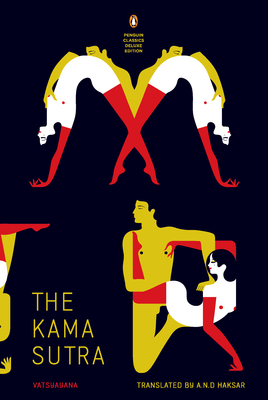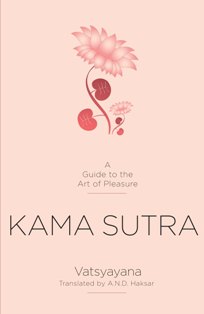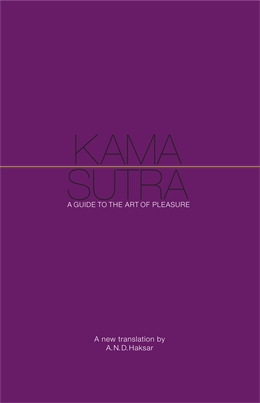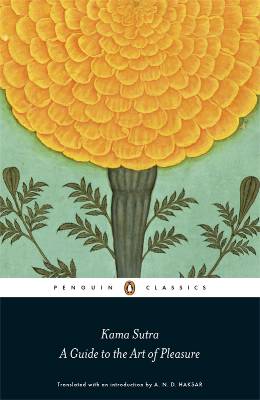the
Literary Saloon
the literary
weblog
at the
complete review
the weblog
about the saloon
support the site
archive
Arts Journal
the Book
The Book Bench
Books, Inq.
Bookslut
BritLitBlogs
Con/Reading
Critical Mass
GalleyCat
Guardian Unlimited
Jacket Copy
Maud Newton
The Millions
MobyLives
NewPages Weblog
Omnivoracious
PowellsBooks.Blog
Three Percent
La Feuille.
Moleskine
Perlentaucher
Rép. des livres
Arts & Letters Daily
Bookdwarf
Brandywine Books
Buzzwords
Collected Miscellany
Confessions/IM
Elegant Variation
Emerging Writers
Laila Lalami
Light Reading
The Page
Paper Cuts
Reading Experience
ReadySteady Blog
splinters
This Space
Two Words
The Valve
Waggish
wood s lot
See also: links page
saloon statistics

opinionated commentary on literary matters - from the complete review
The
Literary Saloon
Archive
11 - 20 February 2012
11 February: David Bellos profile | Bookninja looks back | Alex Epstein's newest book
12 February: Edmundo Paz-Soldán profile | Karachi Literature Festival
13 February: Cairo International Book Fair awards | Editorial involvement | Judgment Day review
14 February: Japanese literary prizes FAQ | UK Romantic Novelists' Association prizes shortlists | Kama Sutra review
15 February: Premio Iberoamericano Planeta-Casa de América Narrativa | Iron Sky
16 February: 2012 Nobel Prize longlist numbers | 100 greatest children's books ? | Autoportrait review
17 February: Translation from the ... Chinese | Sami Rohr Prize For Jewish Literature | Why Capitalism ? review
18 February: Michael Hoffman on Joseph Roth
19 February: Critical denunciation | E-books in ... Turkey | Jo Nesbø profile | Always Coca-Cola review
20 February: Best-selling books 2011 in ... Bulgaria | Thai Writer | Teju Cole Q & A
go to weblog
return to main archive
Best-selling books 2011 in ... Bulgaria | Thai Writer | Teju Cole Q & A
Best-selling books 2011 in ... Bulgaria
At Radio Bulgaria Vessela Krasteva reports on The best-selling books in Bulgaria in 2011 -- and it's not a very pretty sight.
The top two -- and for of the top ten -- titles were by Argentine author Jorge Bucay -- at least one of whose books has been published by Random House in the US -- but not in English (see their publicity page). (He does seem to be quite popular in several corners of the world, but I (and I believe most Americans, etc.) could easily live without his work ever being translated into English.)
No Bulgarian fiction seems to have cracked the top ten, though: "The latest novel by Ludmila Filipova Anomaly is also among the 2011 bestsellers". (For more about The Anomaly check out the (English) information page at her quite elaborate official site; I'm not sure how eager I am to have this or her other work available in English -- though I guess I am a bit curious.)
Among the conclusions:However, in 2011 we did not have a good teenager novel. In 2010 the books by Stephanie Meyer sold like hot cakes. The 2011 chart makes clear another thing: Bulgarians have not only been reading more, but they have been reading books more by Bulgarian writers. We can now point to a group of Bulgarian writers whom people know and read and these include Alek Popov, Georgi Gospodinov. Zachary Karabashliev, Lyuben Dilov Jr., Vanya Shtereva and Iliya Troyanov. Unfortunately, reading is not the same as buying a book. In Bulgaria we have book sales that are 6 to 7 times smaller than the average in Europe.(Works by Popov, Gospodinov, and Troyanov are under review at the complete review; see our index of Eastern European literature.)
And: "Bulgarian contemporary writers have been selling better though they are confined to not more than 15 percent of the market."
(Posted by: M.A.Orthofer) - permanent link -
Thai Writer
In the Bangkok Post Oraya Sutabutr reports that Magazine returns to life, as:After 13 years of absence Writer magazine, practically Thailand's only literary magazine, has risen again from the ashesSounds good -- even if their only web-presence is a Facebook page .....
They report:The magazine was well received at last year's Book Fair, and we have about 200 subscribing members now. With increased financial support and public backing, it's not impossible for a literary magazine to survive.
(Posted by: M.A.Orthofer) - permanent link -
Teju Cole Q & A
In The Hindu Pragya Tiwari has a Q & A with Open City-author Teju Cole, A particular eye, a particular sensibility.
(Posted by: M.A.Orthofer) - permanent link -
Critical denunciation | E-books in ... Turkey
Jo Nesbø profile | Always Coca-Cola review
Critical denunciation
Reviews of non-fiction titles occasionally get attacked and denounced (for being too subjective, for example), but it's much more rare that there is a big fuss about a review of a novel overstepping bounds -- sure, occasionally one can argue that a reviewer was too tough on a debut-work, or maybe invoking: "your favourite uncle being caught in a school playground, masturbating" goes a step or two too far, but that's usually the extent of it -- but a recent review in Germany has kicked up a veritable shitstorm of criticism.
The book in question is Christian Kracht's Imperium (see the KiWi foreign rights page for an (English) introduction, or get your copy at Amazon.de (where its sales-rank was six, last I checked -- controversy remains very good for sales ...)), the review in question Georg Diez's lengthy but unfortunately not available online one in the current issue of Der Spiegel.
Not only did publisher Kiepenheuer & Witsch feel obliged to respond, saying that the review: "sprengt die Grenzen der Literaturkritik" ('bursts the limits of literary criticism') and accusing Diez of "journalistischen Rufmord" ('journalistic defamation'), but quite a collection of authors have responded in a huff: boersenblatt.net prints an open letter to Der Spiegel signed by, among others, Nobel laureate Elfriede Jelinek, Peter Stamm, and Daniel Kehlmann, arguing that with this review Georg Diez 'crossed the barrier between criticism and denunciation' and warning of the consequences of such an approach being tolerated (concluding that that would mean the end of 'free art').
love german books has a good overview of what's at issue, in the book and the review -- but look for lots more about this.
(Posted by: M.A.Orthofer) - permanent link -
E-books in ... Turkey
In Sunday's Zaman Aysu Otağ reports that Publishers hopeful about future of Turkey's e-book market -- noting that: "The first electronic book was launched in Turkey in April 2010".
Market-leader idefix now has around 3000 titles on offer -- and:Following the introduction of e-books to Turkey by idefix.com, many publishing houses have decided to support the e-book market in Turkey. Some publishers convert paperback books to e-books by scanning them, while others release e-books in conjunction with the printed edition. The Turkish Publishers Association has established a digital publishing commission in order to spread news about recent developments in the e-book market to its members.
(Posted by: M.A.Orthofer) - permanent link -
Jo Nesbø profile
Heading (back) down under, Jo Nesbø is profiled by Jason Steger in The Age.
The most recently translated Harry Hole novel, Phantom, is apparently already available there (see the Random House Australia publicity page), while it's only due out in March in the UK (pre-order your copy at Amazon.co.uk) and, bafflingly, only in September in the US (pre-order your copy at Amazon.com).
Several Nesbø titles are under review at the complete review; see, for example, Redbreast.
(Posted by: M.A.Orthofer) - permanent link -
Always Coca-Cola review
The most recent addition to the complete review is my review of Alexandra Chreiteh's Always Coca-Cola.
(Posted by: M.A.Orthofer) - permanent link -
Michael Hoffman on Joseph Roth
Michael Hoffman on Joseph Roth
Joseph Roth: A Life in Letters, a 500-page collection of his correspondence, "edited and translated and footnoted -- yes, above all, it seems, footnoted" by Michael Hoffman is now out, and in The Guardian Hoffman writes about the master, ten of whose books he has now translated, in I learned to see Joseph Roth as his own solar system
See also the publicity pages from Granta Books and W.W.Norton, or get your copy at Amazon.com or Amazon.co.uk.
No Roth titles are under review at the complete review because I read them all long before I started the site, but maybe I'll revisit them at some point in the future (though, I must say, I'll be doing so in the original German, avoiding Hofmann's renderings); Hofmann is certainly write to note that:Everything he wrote is worth my time and anyone's.
(Posted by: M.A.Orthofer) - permanent link -
Translation from the ... Chinese | Sami Rohr Prize For Jewish Literature
Why Capitalism ? review
Translation from the ... Chinese
In the China Daily Zhang Yuchen reports that in China the Book market tries to turn a new page, as:Statistics from the GAPP show that China signed just one copyright export agreement for every 15 imports in 2002. By the end of 2010, however, the ratio was down to 3-to-1.And there's obviously still lots of work to do:
A major wakeup call came in 2005, when senior officials attending the Beijing International Book Fair said they were shocked to learn that although Germany had sold more than 600 copyright agreements to China the previous year, just one had gone the other way.According to Jo Lusby, managing director of Penguin China, her company publishes five to eight Chinese novels in English-speaking markets every year, while for other languages "it's very little, probably two or three, and they are (mostly) classics".
(Posted by: M.A.Orthofer) - permanent link -
Sami Rohr Prize For Jewish Literature
They've announced that the Sami Rohr Prize For Jewish Literature -- worth an impressive $100,000, and awarded to a work of non-fiction this year (they alternate between fiction and non) -- goes to When They Come for Us We'll Be Gone: The Epic Struggle to Save Soviet Jewry by Gal Beckerman; get your copy at Amazon.com or Amazon.co.uk.
(Posted by: M.A.Orthofer) - permanent link -
Why Capitalism ? review
The most recent addition to the complete review is my review of Allan H. Meltzer's Why Capitalism ?
(Posted by: M.A.Orthofer) - permanent link -
2012 Nobel Prize longlist numbers | 100 greatest children's books ?
Autoportrait review
2012 Nobel Prize longlist numbers
At his weblog, the Swedish Academy's Nobel point man, Peter Englund, reports Långa listan klar: nominations were due for the 2012 Nobel Prize on 31 January, and he now shares the numbers.
Only 210 authors were (properly) nominated -- but an apparently inordinate number -- 46 -- were first-timers. The Swedish Academy reports that: "There are usually about 350 proposals each year", and Englund reports that this year there were only 288 -- way below usual. (The discrepancy in numbers is explained in a comment: there were 201 "korrekta nomineringar" (i.e. 'correct' ones) -- proposed by those authorized to do so; there were also quite a few "ej godkända nomineringarna" -- not acceptable ones, such as self-nominations, or those by lesser academics, etc. (love that Swedish term: okynnesnomineringarna).)
Among the other titbits of interest: they requested nominations from a much larger than usual pool of people affiliated with American universities (though the response-rate was apparently somewhat disappointing); on the other hand, an unusually large number of former Nobel laureates, who are automatically eligible to propose names, did throw names into the mix.
Englund doesn't offer any more details, but this is still a nice tease -- and good for him for opening up the process a bit. I hope there's more gossip to come, as the selection process advances.
(Posted by: M.A.Orthofer) - permanent link -
100 greatest children's books ?
Parent & Child suggests the 100 Greatest Books for Kids.
(Posted by: M.A.Orthofer) - permanent link -
Autoportrait review
The most recent addition to the complete review is my review of Edouard Levé's Autoportrait, forthcoming from Dalkey Archive Press.
I liked this a whole lot better than his Suicide.
(Posted by: M.A.Orthofer) - permanent link -
Premio Iberoamericano Planeta-Casa de América Narrativa | Iron Sky
Premio Iberoamericano Planeta-Casa de América Narrativa
They've announced that this year's Premio Iberoamericano Planeta-Casa de América de Narrativa goes to La tejedora de sombras by Jorge Volpi -- selected from 454 entries from 23 countries.
Like several other Spanish-language book prizes, this one bring big bucks with it: it has "una dotación de 200.000 dólares" ......
(The only Volpi book under review at the complete review is Season of Ash.)
(Posted by: M.A.Orthofer) - permanent link -
Iron Sky
Among the movies attracting attention at the Berlinale, the international film festival in Berlin, is Iron Sky -- whose premise certainly is ... intriguing. But what caught my eye was that it's based on a story by Birdbrain- and Not Before Sundown/Troll-author Johanna Sinisalo.
See also the official site, the Berlinale page, Veli-Pekka Lehtonen's report in Helsingin Sanomat, Nazi humour from Finland at Berlin Film Festival, and reviews in The Guardian and The Hollywood Reporter
(Posted by: M.A.Orthofer) - permanent link -
Japanese literary prizes FAQ
UK Romantic Novelists' Association prizes shortlists | Kama Sutra review
Japanese literary prizes FAQ
In The Japan Times Natsuko Fukue offers a FAQ of sorts about Japanese literary prizes, in Literary awards run spectrum.
(Posted by: M.A.Orthofer) - permanent link -
UK Romantic Novelists' Association prizes shortlists
The British Romantic Novelists' Association has announced the finalists for their various prizes, in categories such as 'Epic Romantic Novel'.
Sorry, none of the titles are under review at the complete review.
(Posted by: M.A.Orthofer) - permanent link -
Kama Sutra review
The most recent addition to the complete review is my review of A.N.D.Haksar's recent translation of Vatsyayana's Kama Sutra: A Guide to the Art of Pleasure -- now also available in the US, as a 'Penguin Classics Deluxe Edition' (meaning, apparently: a paperback with flaps).
This came out in a hardcover edition in the UK last year (and is now also available in paperback there) -- and each of the four Penguin editions (US, UK hardcover, UK paperback, India) has a different cover:




[Note that the US cover-picture -- taken from the official site -- in fact is not exactly what the final cover looks like: the image and the print/colors are the same, but there's no "The" in the title, and "Translated by/A.N.D.Haksar" is printed underneath the author's name, not in the same line.
Updated: For a detailed look at the designing of the new US 'Penguin Classics Deluxe Edition' cover, see cover artist Malika Favre's interesting making-of account at Volcomunity. (Lots of pictures, too -- including what the actual final cover looks like.)]
(Of course, there are dozens of other Kama Sutra translations and editions -- indeed, Penguin also published the Richard Burton one as a Penguin Classic (and does so with different covers, too: compare the UK one (here at Amazon.co.uk) and the Indian one (here at Flipkart).)
(Posted by: M.A.Orthofer) - permanent link -
Cairo International Book Fair awards | Editorial involvement | Judgment Day review
Cairo International Book Fair awards
They apparently handed out a whole lot of literary awards at the Cairo International Book Fair, and at ahramonline.com they report that General Egyptian Book Organisation wins majority of Cairo International Book Fair awards.
Not the 'Best Novel Award', however, which went to سأكون كما أريد ('I'll Be What I Want') by حمدى عبد الرحيم (Hamdi Abdel Reheem); see also the Al-Shorouk publicity page.
Nice also to see that they have a 'Best Slang Poetry Collection' award .....
(Posted by: M.A.Orthofer) - permanent link -
Editorial involvement
How big a role do editors play in 'shaping' books for publication ? Author Ben Okri insists not as much as some -- well, his one-time editor -- claim, as he takes issue with Robin Robertson's claim to have fixed up Okri's Stars of the New Curfew; see Richard Alleyne's report, Ben Okri 'disappointment' at editor he claims re-wrote his work in The Telegraph.
Okri says:"He certainly did not and could not "redo" my dialogue. A simple comparison with the Nigerian dialogue in "Incidents at the Shrine", an earlier volume of stories, will make that evident.Whatever the case there -- and a simple comparison should make the case, either way -- the article does offer one other amusing example, quoting Jeffrey Archer's "principal editor", Richard Cohen:I don't know if Jeffrey had a writing disability, but his actual handwriting had a childish quality, and his spelling was deeply erratic.I think we can all agree that Jeffrey Archer has a serious writing disability -- and it has nothing to do with his penmanship.
(Posted by: M.A.Orthofer) - permanent link -
Judgment Day review
The most recent addition to the complete review is my review of Lebanese author Rasha al Ameer's Judgment Day.
(Aside: as I've noted repeatedly, the complete review has an incredible imbalance in how many of the books reviewed are written by men and how many by women -- an historic (and astonishingly consistent) average of well over 6 books authored by men reviewed for every one by a woman (i.e. less than 15% of all titles reviewed have women authors). I don't consciously think about the sex of the authors of the books I review (though who knows what the hell is going on sub-consciously ...) -- and the focus on fiction in translation does affect the odds (a whole lot more is translated that's been authored by men than women) -- but for some reason (?) I'm on a female-heavy stretch here: four of the past five titles reviewed were by women (and 7 of the past 10; and 10 of the past 17 -- all far, far above the historic average).
I don't think I'm doing anything different, but I don't think there's ever been a streak like this (not of all different authors, anyway -- the occasional batch of books by a single female author may have temporarily skewed things). I figure it's a statistical fluke -- after 2800 reviews, it seems likely there would be streaks like this -- but it's still pretty striking. Or have I actually mended my ways ?)
(Posted by: M.A.Orthofer) - permanent link -
Edmundo Paz-Soldán profile | Karachi Literature Festival
Edmundo Paz-Soldán profile
I missed this last month, but at Cornell's Chronicle Online Daniel Aloi reports that Bolivian author Edmundo Paz-Soldán creates place for Latin American voices.
Among the interesting titbits:He went to the University of Alabama in Huntsville on a soccer scholarship starting in 1988, but "I tore a ligament my third year," he says. "I play soccer on XBox now."His two available-in-English titles are under review at the complete review: The Matter of Desire and Turing's Delirium.
Certainly an author to look out for -- and his most recent book, Norte, sounds interesting (pre-order your copy of the (Spanish) US edition at Amazon.com).
(Posted by: M.A.Orthofer) - permanent link -
Karachi Literature Festival
The Karachi Literature Festival is just a two-day affair this weekend, but they pack a lot in, and it looks pretty promising -- see also Imran Yusuf's The unofficial guide to the Karachi Literature Festival in The Express Tribune.
There's a great deal of (local) press coverage; see also the Daily Times report, OUP, BC inaugurate literature festival -- although I'm not sure this is really the right attitude with which to open an event like this:OUP MD Ameena Saiyid said, "Habit of reading is decreasing among people day by day but still a large number of people have interest in books. We organised KLF annually to promote the literature, books and knowledge."Day by day ? Really ?
But at least they're actively promoting, which sounds like a good thing.
(Posted by: M.A.Orthofer) - permanent link -
David Bellos profile | Bookninja looks back | Alex Epstein's newest book
David Bellos profile
In News at Princeton Paul Karr describes how Language expert Bellos explores the art and science of translation. That's David Bellos, author of Is That a Fish in Your Ear ? -- which, it's great to see, is now also available in "a French adaptation", Le poisson et le bananier.
Bellos also heads the Program in Translation and Intercultural Communication at Princeton -- and they host an impressive 'Translation Lunch Series'; scroll down for this season's offerings, which include Natasha Wimmer on 'Translating Roberto Bolaño' (5 March) and Bellos himself on 'Translation 101: Fish Source' (30 April).
(Posted by: M.A.Orthofer) - permanent link -
Bookninja looks back
A year ago today George Murray posted for the last time at longtime-favorite literary weblog Bookninja, and in the National Post he now reflects on eight years of blogging, in Exit the Bookninja.
The Literary Saloon is almost exactly a year older than Bookninja, but along with an old guard that included the original incarnation of MobyLives, Maud Newton, then-still Moorish Girl Laila Lalami, and Bookslut, Bookninja was there when the whole literary weblog scene really began to take off, in late 2003 or so, and was certainly a vital part of it during that heyday.
George notes the changing scene in recent years, and writes that more recently:Bookninja was still well-read, but it wasn't really "needed" like it once was. The void it had filled was no longer a void.I disagree; yes, there is an abundance of alternatives out there -- more literary weblogs than you can count (or I can keep track of), but Bookninja has been sorely missed this past year. (Well, a bit longer -- there was a sense of winding-down at the site for quite a while before posting finally came to a complete halt.)
And I'm surprised and impressed to hear that:At its peak, Bookninja's unique brand of comedic literary commentary reached more than 10,000 people a day.The entire complete review site rarely manages to sustain that level of traffic for any extended periods of time .....
(Posted by: M.A.Orthofer) - permanent link -
Alex Epstein's newest book
As Maya Sela reports in And for his next trick ... in Haaretz, 'Fed up with the way his books were being handled by local publishers and bookstores, experimental novelist Alex Epstein chose to offer readers his latest volume of short-short stories on Facebook'.
That would be לקסם הבא אזדקק לכנפיים ('For My Next Trick I'll Need Wings'), available here.
He says:"The title comes from the world of Twitter," explains Epstein. "It's based on the phrase 'For my next trick I'll need,' which is usually said ironically about something unattainable. The story talks about this gap, about the loss of print, the extinction of print, and in general how books change."But, yes:a few months from now, this book too will be published by Carmel in conventional form, with pages and a binding.See also the complete review reviews of his Blue Has No South and Lunar Savings Time.
(Posted by: M.A.Orthofer) - permanent link -
previous entries (1 - 10 February 2012)
archive index
- return to top of the page -
© 2012 the complete review

Main | the New | the Best | the Rest | Review Index | Links






